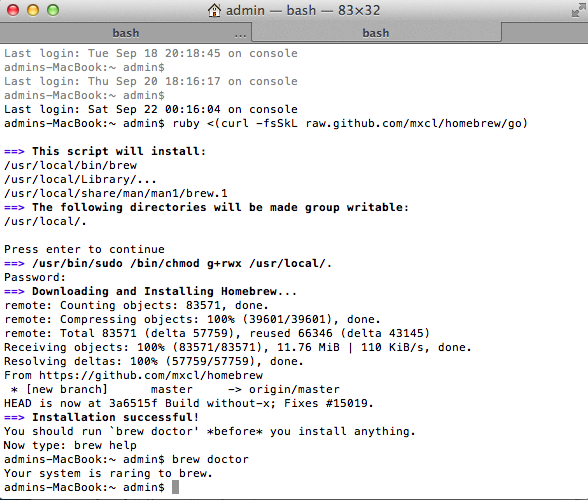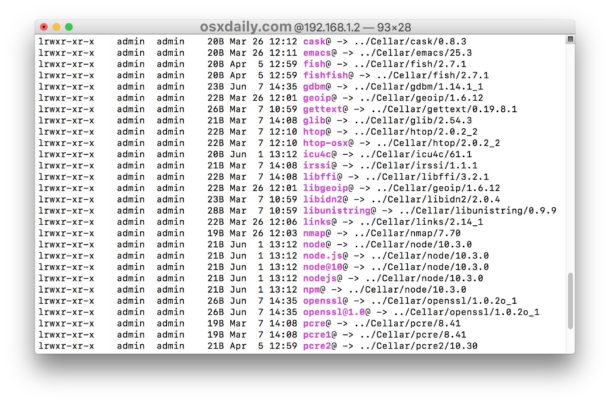If you’re looking for an easy guide to install Node.js and npm on OS X and macOS — this is it.

Latest macOS Sierra/High Sierra-compatible driver for devices using the CH340G, CH34G or CH34X chipset.This chipset is used in several Arduino-compatible clones and serial-to-USB cables. Homebrew is a package manager designed for installing UNIX tools and other open-source applications on Mac OS X. It will quickly download and install them, compiling them from source. Homebrew Cask extends Homebrew with support for installing binary apps — the kind you normally drag to your Applications folder from DMG files.
Before we get started, are you listening to JS Party? If not, you should be! Maybe start with our episode all about best practices for Node developers. ✊

The default method for installing Node.js is to download a pre-built installer for your platform, install it and make sure it’s on your $PATH.
However, if you’re a Homebrew fan like me and prefer to install all of your packages with it — ensuring your packages are installed using the same commands and directories and allowing Homebrew to easily manage upgrades and updates — then this guide will help you get started.
Install Node.js and npm with Homebrew
First, install Homebrew.
Then run brew update to make sure Homebrew is up to date.

As a safe measure you should run brew doctor to make sure your system is ready to brew. Run the command below and follow any recommendations from brew doctor.
Mac Os X Install Homebrew Plugin
Next, add Homebrew’s location to your $PATH in your .bash_profile or .zshrc file.
Next, install Node (npm will be installed with Node):
To test out your Node and npm install, try installing Grunt (you might be asked to run with sudo):
If that worked then congratulations — you’ve installed Node.js, npm, and Grunt.

If not — retrace your steps or post a question to Stack Overflow.

Listen to related podcasts on The Changelog
Mac Os X Catalina Install Homebrew
Since you’re interested in Node.js, npm, and Homebrew — listen to some recent related podcasts we’ve done on those subjects.
